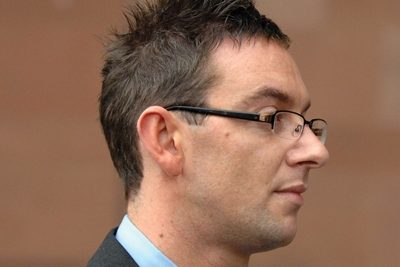A former nurse found guilty of murdering four elderly patients has today lost his appeal against the convictions.
Colin Campbell, formerly known as Colin Norris, was convicted in 2008 of murdering four women and attempting to murder a fifth by injecting them with insulin.
All five women were older inpatients on orthopaedic wards in Leeds where Campbell worked as a nurse. Each died after developing severe, unexplained hypoglycaemia.
Campbell was convicted of murdering Doris Ludlam, 80, Bridget Bourke, 88, Irene Crookes, 79, and 86-year-old Ethel Hall at Leeds General Infirmary and St James’s Hospital in 2002, during a five-month trial which concluded in 2008.
He was also found guilty of attempting to murder 90-year-old Vera Wilby.
Campbell was sentenced to life imprisonment with a minimum term of 30 years.
He was also struck off the Nursing and Midwifery Council register in April 2009.
Efforts by Campbell to appeal his convictions were turned down by the Court of Appeal in December 2009.
In October 2011, Campbell applied to the Criminal Cases Review Commission (CCRC), which investigates potential miscarriages of justice, to review his case.
Some 10 years later, in 2021, the body referred his case back to the Court of Appeal.
It said the case against Campbell was “wholly circumstantial” and “heavily reliant on expert opinion evidence”.
The CCRC considered new expert evidence that concludes that the hypoglycaemia in the four patients other than Ms Hall may be accounted for by natural causes.
The evidence highlighted developments in the understanding of hypoglycaemia, including its prevalence in older and frail people, which cast further doubt on the expert opinion relied upon by the prosecution at trial.
As such, the CCRC said that there was a possibility that the Court of Appeal could find that Campbell’s convictions for the murder or attempted murder of one of more of the four patients was unsafe.
On the murder of Ms Hall, the CCRC considered that the conviction depended upon support from the other four cases, and the prosecution’s assertion that no one other than Campbell could have been responsible.
However, delivering their judgment today, Lady Justice Macur, Mr Justice Picken and Sir Stephen Irwin said: “We have no doubt about the safety of any of the five convictions. The appeals are dismissed.”
During an appeal hearing earlier this year, Michael Mansfield KC, acting for Campbell, noted that the original jury had asked if there were other cases of patients suffering from “sudden and profound” hypoglycaemia in any of the Leeds teaching hospitals after Campbell stopped working.
He alleged that four such cases had since been identified, with the deaths recorded between January 2003 and August 2005.
However, the appeal judges argued that these new cases did not help the appeal.
They said in their judgement: “On our own analysis, the ‘extra’ cases serve to underline rather than undermine this aspect of the phenomena that are said to be distinctive in those cases of administration of exogenous insulin.”
The court of appeal judges began their judgement by warning not to draw parallels between Campbell’s appeal and any other cases.
It comes as former neonatal nurse Lucy Letby – who is serving multiple life sentences for the murder of seven babies and attempting to murder seven others – is having her case considered by the CCRC after two failed appeal attempts.
The judges said: “Some observers have made clear in their applications to follow the proceedings by that they seek to draw parallels between this case and other similar cases that may be ongoing.
“We make clear that we have each contributed to writing this judgment mindful of the necessity to explain the decision we reach, which has been dependent upon our view of an intricate debate between eminent scientists, by identifying the relevant issues and addressing them in terms of an appeal against conviction in the circumstances of this case.”
More on the Colin Campbell case

